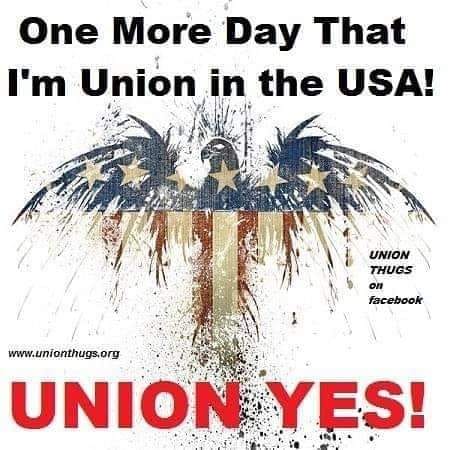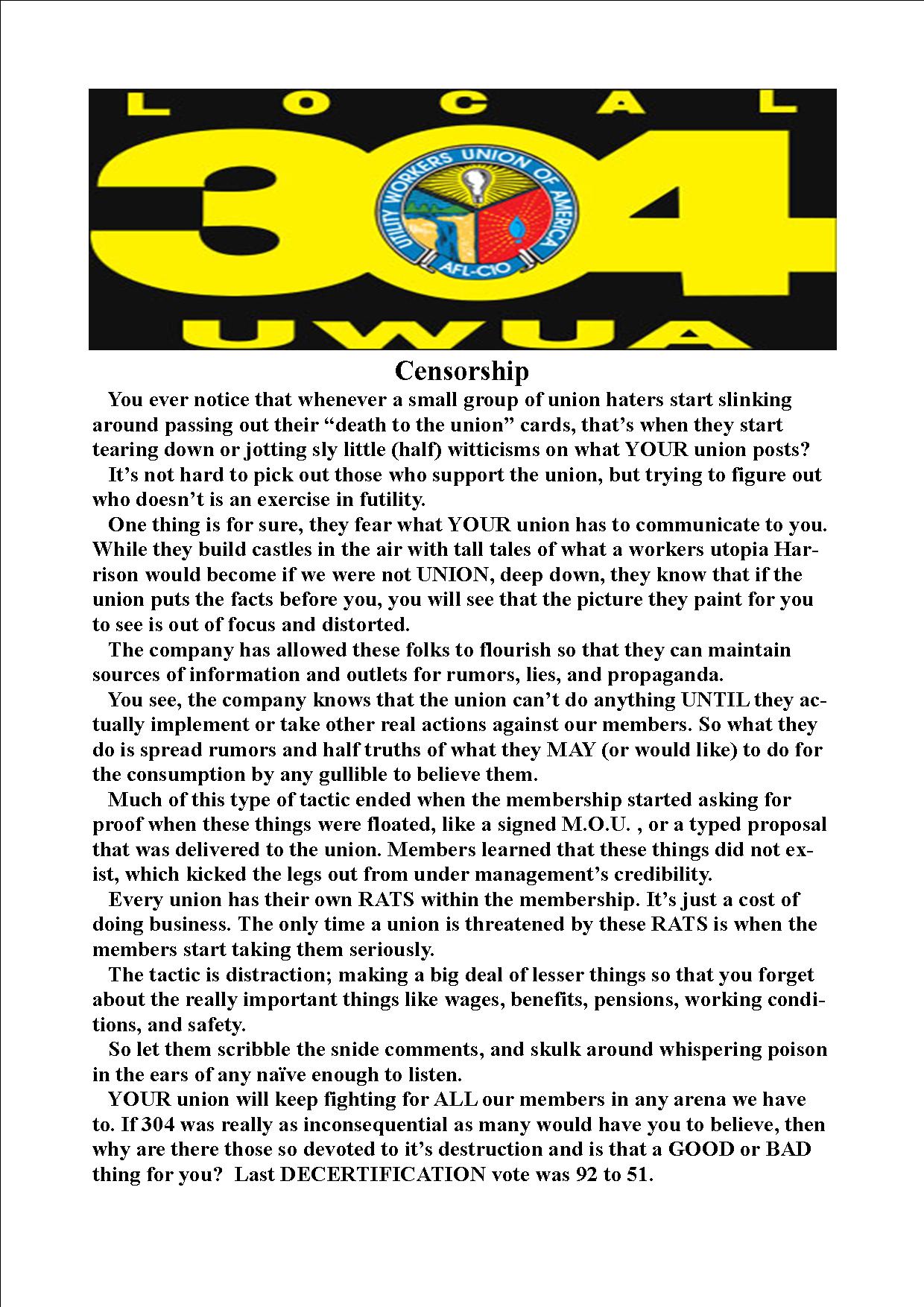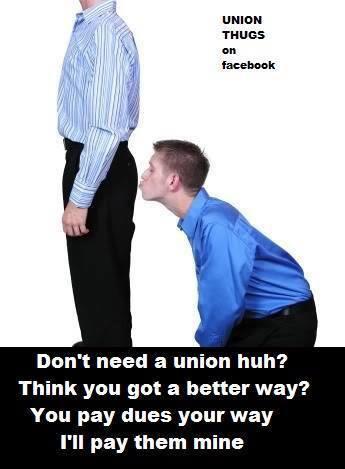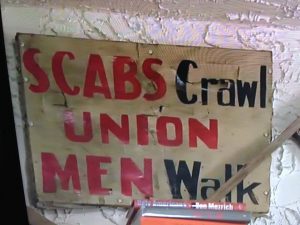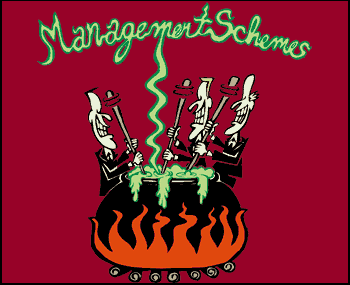Dissemination of Information
There are some people who may ask what YOUR union uses as a basis for the information we put out to the membership.
In an age when information is used as a weapon to manipulate and control people’s thoughts and actions, it’s a fair question to ask.
The answer is simple, we are part of a network that has over eighty years of experience, the Utility Workers Union of America, and the lessons learned in bargaining three contracts, one of which was turned down twice, and two that we adopted and worked under since we became a union in 2010.
When we tell the membership the things they could lose or that may change, it’s based on past negotiations and actual proposals YOUR union has seen presented to us over the past decade.
What would happen if UWUA Local 304 would go away?
Anybody who tells you that they KNOW what will happen is a liar. Truth is, nobody knows for sure.
 When 304 was organized, the general consensus among those immersed in the effort was that we were being bought just for our Transmission and Distribution within the lucrative PJM RTO.
When 304 was organized, the general consensus among those immersed in the effort was that we were being bought just for our Transmission and Distribution within the lucrative PJM RTO.
When this opinion was shared with those less informed, they laughed, pointing out all the large and profitable plants in our system, and how THEY were the real assets.
Here we are in 2021, and no one is laughing anymore. There is nothing funny about closed plants, displaced workers, and less reliable and secure generation being readily available too feed America’s hungry power grid.
In these uncertain times, it’s YOUR union that maintains a certain amount of stability for our members. With our CBA’s Successors and Assigns clause, and language concerning furloughs, layoffs, and bumping rights; it doesn’t matter what company’s sign is out in front of the plant, our members can rest assured that if there’s smoke out the stack, they will have a job.
You can ask, “what has the union done for me?”
At the very least, YOUR union has kept the wolf from the door in a time when coal is being attacked, companies are being bought and sold, and times are less than certain.
Blast From The Past
The article below is a blast from the past that was circulated the LAST time someone tried to decertify our union, but the facts contained in this article have not changed. We’ve worked under our 2nd contract, and now ready to negotiate our 3rd. Read on:
With our first contract coming due, it’s no surprise that the rumors are swirling about a possible attempt at decertifying our union may be getting underway. After all, what better way can the company erode our bargaining power?
After a four year battle to get our first contract, it’s understandable that some may feel apprehensive at going back to the bargaining table. This is especially true if you are one of the members who never attends union meetings, don’t visit your unions website, or Facebook page to have a more informed idea about what 304 does for you.
Regardless of what our union accomplishes, it will always be the last thing it failed to do that many members will remember. It’s always, “what have you done for me lately?”
We’ve had our contract twisted, ignored, and outright violated ever since we ratified it. Your union officers have fought a never ending battle, through three administrations, through the grievance process, arbitration, and the National Labor Relations Board in an effort to represent the membership and enforce our CBA.
When we ceased being Allegheny, there was a lot of uncertainty and fear. Many senior management decided to jump ship, and taking their place are the managers we now have, many of whom we remember as being some of the loudest pro-union voices in past organizing drives.
Harrison organizing had a profound effect on our managers, especially when Allegheny Energy, and their managers and supervisors were, and remain, rabidly anti-union.
These are the same people who withheld our variable pay and cost of living raises for over a year post merger, setting off a long battle that resulted in a $1.25 million dollar settlement paid out to our members. The same folks who play games with time cards to cheat members, just to see who would file a grievance and who wouldn’t. These are the same ones who fired an employee who had an accident and the union fought to have him reinstated.
The company can blame fear of the membership for voting to be represented by the UWUA, but that fear is nothing compared to the terror experienced by those who had sold their very souls to the company.
This fact is borne out by the actions of the people in charge at the plant. They make mountains out of mole hills, out of someone being a few minutes late, or how and when someone called off, or made a request for a day off. Any reason they could seize on so they could run up the chain of command and show our new owners how true blue they are; real team players, totally supporting the new regime.
Now the cycle is starting over. Our contract is coming due in 2018 (now 2022) and SOMEONE is trying to weaken our bargaining power with yet another decertification drive.
What are they thinking?
That’s easy to guess. They think that they have hired enough young, and to their way of thinking naiveté, employees to weaken union support and those staunch supporters in the union must be getting tired with all the infighting, rumor-mongering, and dirty tricks we’ve had to fight since ratifying our first (and second) contract.
We’ve been a union since 2010, but are still learning everyday how to BE a union. The company has actually helped us in this by pulling all the stupid, vindictive, and petty stunts they have pulled. They taught 304 one of the MOST important lessons, which is how to FIGHT for our members.
Now, the same people that played games with your timecards and cheated you out of your earnings, who no longer honored long standing past practice just to try to exert dominance over you, and nitpicked against union supporters, while at the same time feeding their rats, want you to believe that they can be trusted to be the sole arbiter of your working life.
Make no mistake, without a UNION; you are an “employee-at-will.”
This means you can be fired at anytime with no just cause, and if you don’t like the rules and policies then you are free to seek employment elsewhere.
Being UNION grants you specific rights and protects you if you exercise those rights. You have a special and unique legal status by being in a union. This is why corporations are spending BILLIONS to break them.
We work for a company who is flirting with bankrupting one of its own subsidiaries in an attempt to survive. They have shuttered almost every plant they owned; including the ones acquired through the merger, and has shown what projects have priority by the ones the boast about. They shown a questionable commitment in continuing in the generation business.
It was always said that Allegheny was only attractive because of the transmission they owned, not the plants. It seems this has been proved to be true.
The tact the company is trying this time is, “decertify 304 and go with the IBEW.”
Make no mistake, if you vote to decertify your union, there will not be one to replace it. You will have offended every union supporter who fought to make us Utility Workers, and will learn the truth too late that the company’s real position is that NO UNION is a good union.
As far back as 2008, the committee responsible for organizing Harrison looked at both the IBEW and the UWUA. What we found was that being in the UWUA gave us more autonomy to run our Local as we see fit. We wanted to elect our officers, not have them appointed, and most of all we did not want to be in conflict with other trades unions who may come onsite as contractors.
This is not to say there is anything wrong with our union Brothers and Sisters in the IBEW, it’s just that we thought, and still do, that the Utility Workers is a better fit for us.
Ever since, the Utility Workers have justified that vote of confidence, even in the present political anti-union environment.
So take a hard look at the facts. Our union’s integrity is intact. You’ve been told the truth, at least the truth as we understood it at the time. It didn’t matter if that truth was good news or bad. When the union made mistakes, we admitted it, and when we won we were graceful, not boastful.
If you are offered a card for decertification, consider the hand offering it. Would you want that person as your boss?
Is the person the type to help a friend, or are they only for themselves.
Ask yourself if they have success in their life?
I may not know the shadowy agents circulating in our membership, but I know who they are working for and who will benefit from a decertification, and it’s NOT YOU!
Your union officers are all family men who give freely of their time in representing all of us. They have wives, children, and even grandchildren. They have house and car payments, they worry about their kids, have chores waiting for them after a hard days work.
They do what they do because 304 is something they believe in.
That’s what it is to be union, a belief in the goodness of each other.
Believe in each other
The way to strengthen our bargaining power doesn’t lie in which union we are with, it lays in our solidarity as a union. It may sound corny, but YOU are THE UNION, and when we stick together as a united front we are invincible.
Stay with the Union!
 How many of you have the following:
How many of you have the following:
Car insurance?
Homeowners insurance?
Renters insurance?
Life insurance?
Health insurance?
Dental insurance?
Chances are that most of us have these, and maybe a few others. Truth is, we buy insurance coverage for the important things we value to protect us and our loved ones and investments JUST IN CASE the unexpected should happen.
Now, how much do you value your job?
Would it seem reasonable to have something to fall back on if something unexpected happens at work?
No, I’m not talking about workers compensation or disability/dismemberment coverage. I’m talking about protection from the politics, egos, and favoritism that can threaten your career in far more subtle ways than if you were injured.
That is what a union does!
Unions protects employees from the sometimes arbitrary and unfair whims of management and their local front line supervisors. That protection extends to wages, benefits, seniority, and a successors and assigns clause just in case your sold off to another corporate entity. You collective bargaining agreement spells out, in black and white, what the company’s obligations are to YOU and what RIGHTS you have as an employee. Your CBA also lays out what you can do if those rights are violated or ignored through a defined and legally binding grievance and arbitration process. With a union in place, you are no longer an “at-will” employee, subject to the unrestrained will of your employer. A union gives you something that scares employers to death, which is LEGAL STATUS!
That being said, a union is only as strong as the membership makes it. When employees band together in strength and solidarity, the company has no choice but to bargain with the union and deal with their workers fairly, as equals.
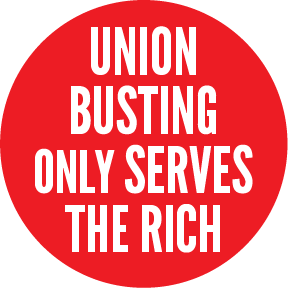 This is why corporations spend billions of dollars in political lobbying against workers by attacking prevailing wage laws, lobbying at the state and federal levels to get laws passed like “right To work”, and by attempting to starve out those institutions charged with enforcing safety regulations and the administration of the Fair Labor Standards Act.
This is why corporations spend billions of dollars in political lobbying against workers by attacking prevailing wage laws, lobbying at the state and federal levels to get laws passed like “right To work”, and by attempting to starve out those institutions charged with enforcing safety regulations and the administration of the Fair Labor Standards Act.
This is also why corporations spend vast amount of money to establish and support a vast network of seemingly legitimate organizations, trusts, and institutions who flood working America’s conscientiousness with hot button, and often knee jerk reactionary, issues like abortion, gun rights, immigration, gay rights, and anything else that forces workers to take up sides against each other so that they cannot unite against the corporate masters at the top.
An old favorite often used to attack unions is the fact that you must pay dues as a member. It doesn’t matter that these dues are often less than a couple percent of a workers base pay, or that the average union workers earns up to 29% more than their non-union counterparts. This is concealed in fiery and false rhetoric about evil “union bosses” living lavishly off the backs of those who labor.
If dues are an issue for you, then let me ask you this, what else do you pay dues to?
Maybe it’s to a health spa, which gives you the right to use their facility and equipment as long as you follow their rules.
Maybe you’re a member of AARP. You enjoy the magazine and discounts that come with membership. They are a strong voice for the retired and elderly BECAUSE of the membership.
It doesn’t matter if you are a member of the Masons, the Eagles, the Moose, Knights of Columbus, VFW, American Legion, AAA, or even your chosen place of worship; all these fraternal organizations require dues, membership fees, tithing, or other monetary compensation for the services they provide to you.
Don’t fall into the trap of weakening your union’s bargaining power just because some bought and paid for politicians pushed some version of ALEC’s “right to work” laws into law in your state.
Don’t sacrifice dollars to save pennies; STAY WITH THE UNION!
Dues Paid vs. Paying Dues
UWUA Local 304 has seen many changes in it’s eleven years of existence, one of the most remarkable is the amount of retirees and new faces we’ve had. Many of the ‘old-timers’ who were around when 304 was organized are now gone, and not enough remain to inform and educate our new Brothers and Sisters about conditions that existed at Harrison before the union and what many members endured when organizing 304.
 After Allegheny Energy flirted dangerously with bankruptcy, and the stock price plummeted, the managers credibility at the plant took a hit when it came to preaching the gospel of the company and the evils of a union. Not surprisingly, it was soon announced that we were “merging” (a.k.a. being bought) by First Energy. FE was a total unknown to most of us who knew Duke, AEP, Dominion and other power company’s adjacent to our service area.
After Allegheny Energy flirted dangerously with bankruptcy, and the stock price plummeted, the managers credibility at the plant took a hit when it came to preaching the gospel of the company and the evils of a union. Not surprisingly, it was soon announced that we were “merging” (a.k.a. being bought) by First Energy. FE was a total unknown to most of us who knew Duke, AEP, Dominion and other power company’s adjacent to our service area.
Harrison employees banded together, shared what they learned of our new owner, and decided that organizing with the Utility Workers was the best chance to protect their wages, benefits, and working conditions at our plant. However, our new owner had their own plans.
What followed was a bitter campaign for the organizing committee, assisted and advised by the UWUA, against the expensive and ruthless hired guns of the company who aggressively sought to defeat and confound the efforts in unionization.
There were the standard tactics of captive audience meetings, one of which featured outgoing Allegheny millionaire CEO Paul Evanson, as well as one on one meetings between managers and employees to exert enormous pressure on each individual to vote against the union.
In addition to the standard litany of half-truths, distortions, and outright lies, there were even more nefarious actions taken against union supporters. Some of the more outrageous examples of these were:
- a senior and respected maintenance man was sent home for three days, without pay, for an act of insubordination when accused of throwing a booster fan door. The membership took up a collection for him.
- an operator who was also given three days off for tripping the wrong breaker on an offline unit. Another collection was taken up.
- a coal handler who was fired for a vehicle accident on the coal pile. The union fought and saved his job.
- a manager/supervisor who telephoned an employee’s wife to lie to her that her husband really wasn’t working the overtime he claimed to her that he was.
- there were man other acts of intimidation committed, both known and some not, many consisting of aggressive management making mountains out of mole hills.
 If an employee was a known union supporter, they were painted as a target and faced an all out assault by management to make them seem disloyal, dishonest, and incompetent, all at the direction of their high paid union-busters.
If an employee was a known union supporter, they were painted as a target and faced an all out assault by management to make them seem disloyal, dishonest, and incompetent, all at the direction of their high paid union-busters.
Harrison employees knew the only real power a union has is when they all stick together, and they did. They put it all on the line; their careers, benefits, retirement and reputations to endure and support each other during these tumultuous times.
In the end, Harrison employees voted for the Utility Workers Union of America as it’s exclusive bargaining agent with the company, which locked all the things that made working at Harrison a good job into what was called “status-quo”. This basically meant that First Energy could not just come in a make huge changes that affected the newly established bargaining unit without those changes being bargained and agreed to by the union.
 This started a second act of intimidation, abuse, and delaying tactics in reaching a contract. It took four years, in which time the company attempted to deny wage increases and variable pay/Short Term Incentive pay due to employees, while chipping away at the state of status-quo that they were legally binding to observe, but ignored.
This started a second act of intimidation, abuse, and delaying tactics in reaching a contract. It took four years, in which time the company attempted to deny wage increases and variable pay/Short Term Incentive pay due to employees, while chipping away at the state of status-quo that they were legally binding to observe, but ignored.
This forced the union, through our first elected Executive Board, to take many complaints of the company’s actions to the National Labor Relations Board (NLRB). In the meantime, while legal battles raged, the company attempted to de-certify the union by petitioning for another union vote. To their great surprise, this vote revealed a growth of support FOR the union compared to the initial vote.
 After almost four years, a $1.25 million dollar judgement against the company won by the union and a contract bargained with 304’s second bargaining committee, we began the process of being a union.
After almost four years, a $1.25 million dollar judgement against the company won by the union and a contract bargained with 304’s second bargaining committee, we began the process of being a union.
UWUA Local 304 started with a federally mediated contract as it’s foundation, something that rankled many members who came from other long and well established unions with contracts built and evolved over decades.
Paying dues is the first thing those who knock organized labor seize on when arguing unions. The reason is simple; being union gives you the legitimate legal status to act, but doesn’t pay for representation when you do. That is why we pay dues to pay our own officers when acting in our behalf and legal counsel to support us when we need it.
Never forget about the dues already paid by those who came before that affords you these rights. Take them for granted and they will be gone. Union power is derived by a united membership all pulling together.
Read the article that appeared in The Utility Workers magazine in December, 2001, about Local 304.
Management Schemes Part 3 – Putting Together a Plan
Imagine this. The personnel manager calls a meeting with the union committee one day and makes the following announcement:
“Because of increased external and internal competition, we have to make some changes around here. Starting next week, we will begin to implement direct flow technology with elements of kaizan layered in. We’ll all work together on this so the self- directed teams will begin immediately to exercise their empowerment and direct the reorganization.”
The union committee says “What?”
To which the boss replies, “We don’t know the details of what this means, it’s up to the employees, but to help facilitate the process we have hired the consulting firm of Speedum & Up. They will facilitate the entire process.”
What does the union do when the employer approaches the union with a management scheme like this or like any of the others that the UE Steward has outlined in the last two issues?
- Stop, think, analyze;
- Assert the union’s rights as collective bargaining agent;
- Ask questions, and demand answers;
- Analyze and figure out what the employer really wants;
- Discuss problem with the union members, stewards, national union representatives;
- Educate the union members, stewards if necessary;
- Decide what the union wants, and make a plan;
- Negotiate with the employer and get an agreement in writing.
If the employer bypasses the union and begins to implement a new program, then the union must immediately go to step two and assert the union’s rights as the sole and exclusive collective bargaining agent.
The employer should not be meeting directly with employees or with selected groups of employees if they are discussing anything that could impact wages, hours, and conditions of employment. They must first meet with the union committee. Be assertive about this. Demand that the meetings cease until they meet with the union. Do not agree that they will allow the union to sit in on the meetings as they happen. If the employer goes ahead and starts holding the meetings, then file a grievance (file it as a violation of the Recognition Clause/refusal to recognize the union) and attend the meetings so the union knows what is going on.
Now for some details on the steps listed above.
1. Stop, think, analyze
When the employer approaches the union about implementing a new program, the union committee must insist upon having time to sit down and think about what the employer has proposed. Employers will often try to rush the union into making a decision, thus hoping to get the union involved before it knows what is going on. One ploy of employers is to say they really don’t know what they want, they just want to try something different. Employers know exactly what they want, count on that. In contract negotiations the union usually takes a caucus after the employer makes a proposal, to discuss among the committee what the proposal really means. This is no different.
2. Assert the union’s rights as collective bargaining agent
Make sure the employer understands that no changes will be made to existing conditions without the union’s approval. Depending on past practice and specific contract language, the employer might be able to make some changes, but major changes in production methods usually run into contractual language. This gives the union power. If you’re unsure about the rights the union has, contact the UE Field Organizer assigned to your Local.
3. Ask questions, and demand answers
Get as much information as you can in writing. Often times they will have a manual that has been prepared for them by some consulting company. Demand a copy. These manuals are often very frank in stating what the employer should get out of the program. It might describe exactly how they will speed-up production, eliminate employees, or bust the union. Ask as many questions as you can and follow-up in writing. Make the employer reveal their intentions. Ask for names of other employers that have implemented this program.
The employer has answers, don’t let them kid you. If you think the program could cause changes in the production flow, ask to see the plans for redesigning the work flow. If the employer insists that they have no preconceived plans, that they don’t know what they want, tell them to come back to us when they do know what they want. Does the employer want better quality, faster production, cheaper production, better delivery of services? If they tell us what they want perhaps we can do something, BUT we will want guarantees in return. NO layoffs, no job cuts, no sub-contracting, no anti-union campaigns, higher pay, more training, job security, etc.
4. Analyze and figure out what the employer really wants
Once the union has gathered as much information as possible it is time to sit down and analyze what the employer wants. There are many factors to take into account.
If the employer has a history of anti-union behavior, then it is reasonable to be suspicious of any proposal they make. Do they really have a problem with quality that they want to fix, or is this just an excuse to start quality circles to divide the union members?
Make a list of what is good about the program (if anything) and what union members should be concerned about.
For example. The employer proposes a “pay for knowledge” program, where the more jobs a worker learns the more pay he/she receives. To many workers this sounds good. Extra pay is always welcome and finally the employer is willing to provide on-the-job-training.
The union lists the problems. What if a senior employee doesn’t want to learn extra jobs? Who gets laid off, a less senior employee with multiple skills or the senior employee with only one skill? Who gets the extra training? Does it go by seniority? Does everyone get extra training if they want it and get extra pay all the time? Does the employer really just want to offer this to his pets? With many multi-skilled workers who can be transferred to many jobs, will this cause permanent layoffs?
5. Discuss problem with the union members, stewards, national union representatives
The national union can provide many resources to help the local analyze the problem and come up with a plan of action. There are workshops available on cell manufacturing, Just in Time and other programs. It is important to get input from the union stewards and members as to what they think is going on. The committee must know if the supervisors are out working the floor, making promises to the membership. The strength of the union comes from its unity and organization. If members, officers and stewards are running in different directions, then we lose.
6. Educate the union members, stewards if necessary
Often times the employer’s plan may sound good to the membership. Vague promises of more money or job security get inflated when they are run through the rumor mill. The union may have to conduct an educational campaign as to the real nature of the employer’s proposal. Meetings, leaflets and lots of work by the stewards may be necessary to keep the membership united and on the right track.
7. Decide what the union wants, and make a plan.
If the union decides that the best approach is to just say “no,” then that is the plan. The union will have to be prepared for the employer not taking “no” for an answer. This can work if the membership is unified and understands what the employer is really up to. Part of any plan, the most important part, will be to figure out ways that the membership can express its opinion. Stickers, buttons, rallies are very important.
Often times we need a more complicated plan. The employer might have contractual language that will allow them to implement their plan. If that is the case then the union needs to figure out what to do to safeguard the members. The plan must include how the members will be involved in the company program.
In one UE shop the employer wanted department teams to make plans for improving production. The union’s demands were as follows:
- The union membership elected team members and could recall an elected team member.
- The union officers and department steward could attend every meeting.
- Union members could meet in caucus without management or a consultant present.
- The teams could not implement any changes in the department without a membership vote.
- No changes could lead to any layoffs.
- Any changes that affected the contract had to be negotiated by the union committee and voted upon by the membership.
What the employer really wanted was speed-up and layoffs and thus was stymied by the union’s conditions on participation. The “teams” soon disappeared.
Be bold in making plans. Make a list of every demand that will safeguard the members. Don’t be bashful about adding them to the list.
Make additional demands. If the employer wants the union’s help on setting up a cell then perhaps the employer should also be willing to talk about improving the pension. Employers don’t wait until contract negotiations to make demands, neither should the union. The union can demand that the employer invest in new equipment and machinery or hire more employees.
8. Negotiate with the employer and get an agreement in writing.
Oral promises aren’t worth much. If the employer’s intentions are “honorable,” then they shouldn’t be afraid to put commitments in writing. A no-layoff pledge isn’t worth anything if it was just a vague promise. The agreements should come before the program starts. Once the program has started and members are involved it will be hard to make the employer sit down and negotiate.
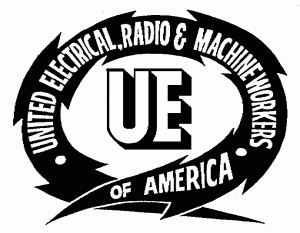
- The above article is used with permission and grateful appreciation from the United Electrical, Radio and Machine Workers of America (UE)
www.ueunion.org
Management Schemes Part 2 – A Short Glossary of Terms
Every month it seems like there’s a new management scheme introduced to the workforce. Like hula hoops, these fads come and go, but some have been around for awhile now. Even though many of these terms refer to manufacturing, a good number have been adopted for use in the service sector:
- Cell Manufacturing
- All the machines used to manufacture similar products are grouped together in a given area, instead of separate departments for each type of machine. Supposed to cut down on material moving and workers, by having workers cross-trained to run more than one type of machine or perform more than one function.
- Just in Time (JIT)
- A production system that does not use inventory. Products and parts are produced only when they are ordered and needed. Companies save money by having no inventory on hand. Since there is no inventory, workers can have a lot of control over the production process and therefore over the employer. Most JIT systems use heavy brainwashing so workers won’t use their power over the employer.
- Direct Flow Technology
- A variation of a Just in Time production system. Products are only produced when they are ordered, in the exact number that was ordered.
- High Performance Workplace
- A system where the union works with the management to cross-train everyone on skilled jobs and agrees that all non-skilled work can be farmed out to low wage shops.
- ISO 9000
- A standardized system of measuring quality, developed in Europe to ensure everyone was using the same standards. US companies that want to sell in Europe need ISO certification. ISO stands for “International Standards Organization.” In the US companies usually try to add team concept, or Just in Time and claim it is required under ISO regulations.
- Kaizan
- A Japanese system basically developed at Toyota Co. It means continuously improving production to make it more efficient. This usually means all idle time is filled with running machines.
- Kanban
- Originally a Japanese term for a sign that indicated a need for more parts to be produced. It is one of the many forms of Just in Time production.
- KITA
- A management by stress program developed by GE. It constantly moves workers around and lays off workers. It really means “A Kick in the Ass.”
- Lean Production
- When employers say they want “lean production” it means they want speed-up, job combinations and to do away with all “non-productive” workers, like inspectors, janitors, material movers etc. The remaining workers have to do it all. Lean production is often used to describe all the types of various management schemes.
- Management by Stress
- This theory reasons that improvements only come about when there is a certain amount of tension in the workplace. Bosses create this tension by constantly demanding more, in less time, with fewer employees. They also create tension by demanding changes in how work is done, even if no change is really needed. A by-product of “management by stress” is also known as “workplace violence.”
- Pay for Knowledge
- A system where workers get paid more as they become cross-trained and learn other jobs. This tends to compress job classifications into a few large categories so workers can be transferred to any job in the classification. It often fails because the employer wants to pick and choose who gets trained.
- Push-Pull Systems
- A “pull” system means that manufacturing is only done when orders come in. The orders “pull” the product through the factory. Direct Flow systems are “pull” systems. A “push” system refers to a company pushing parts and products through the production process whether or not they have orders.
- Quality Circles
- Workers form circles to discuss with the boss ways to improve quality. Bosses use this to get workers to complain about each other and to by-pass the union structure.
- Self-Directed Workforce
- A program where employers get rid of foremen and make the workers manage themselves. This can be fun if all the workers agree not to rat each other out.
- Six Sigma
- A program of statistical process control developed by Motorola and expanded upon by GE which is pitched as a way to cut defects and eliminate rework. Through process mapping and other techniques, the objective is for the company to gain complete knowledge and “control” of the work process. This leads to increased standardization of jobs, less reliance on the skill and knowledge of the workers, and helps pave the way for the transfer, speed-up and elimination of work.
- Statistical Process Control (SPC)
- A system where workers carefully document how their machine runs and all the steps they take to produce a product. This is supposed to help maintain quality, but usually it is used to eliminate in process quality inspectors.
- Team Concept
- A variation of quality circles. Workers form teams in each work area and compete with other teams to produce the most for the boss. This usually comes with heavy brainwashing sessions on why workers and the employer should be buddies.
- Win-Win Bargaining
- A supposedly non-confrontational form of negotiations. Neither side is supposed to prepare an agenda or demands. The problem is, the boss always has an agenda.
- WorkOut
- A GE program ostensibly designed to encourage “boundaryless” behavior by encouraging open group discussion of work-related issues between workers and management. In reality, it is a means by which the company accesses the workers’ ideas and knowledge of their jobs to cut costs and to ratchet up productivity. Also known by GE workers as the “out of work” program.
- Worker Empowerment
- A term bosses use when they want workers to help them improve quality and speed-up production. Having the power to speed-up work is supposed to make workers feel “empowered.” Worker empowerment does not apply to deciding on who gets the profits, setting work schedules, deciding what country to produce in, or any other item that really matters.

- The above article is used with permission and grateful appreciation from the United Electrical, Radio and Machine Workers of America (UE)
www.ueunion.org
Plant Closings (WARN and Warning Signs)
The (few) protections for workers facing plant closings

Issues
- There are not many protections for U.S. workers facing a plant closing. Stewards and union officers must be familiar with the few that are available – especially the WARN act and similar state laws.
- The WARN act requires 60 days advance notice of a closing in certain situations – unfortunately, many workplaces are too small to be covered by WARN (remember, bosses fought hard against even this limited legislation).
- Many times, a closing can be predicted, prepared-for, and even averted by keeping a watchful eye on what’s happening at work.
Note: This article was published in 1997
The WARN Act
Offers Some Protection
It does not offer a lot of protection — but at least it offers some warning to some workers in possible plant closing situations
The Worker Adjustment and Retraining Notification Act of 1988 (WARN Act) is intended to give workers, their families and the community sixty (60) days advance notice by an employer of any plant closing or mass layoff (unions can negotiate longer notice times). The employer must provide this notice to the union, to the elected officials of the town or city where the workplace is located and to the proper state officials.
WHO’S COVERED?
The WARN Act covers any employer with more than 100 employees, including all office and supervisory personnel. Workers who have not worked for the employer more than 6 months out of the last 12 and workers who average less than 20 hours per week are not counted.
WHAT TRIGGERS THE WARN ACT?
Plant closing: Notice must be given if a workplace or part of a workplace will be shutdown and 50 or more employees during a 30 day period will lose their jobs.
Mass layoff: The same 60 day advance notice must be given if there is to be a mass layoff not due to a plant closing but which will result in an employment loss during any 30 day period for 33% of the total active workplace (or 500 workers, whichever is fewer).
Sale of business: If any of the above thresholds are met during a complete or partial sale of a business then WARN Act notice must be given. If the closing or layoffs occur before the sale then the current owner is held responsible for giving the notice. If the new owner closes or initiates a mass layoff, the new owner is held responsible for giving the notice.
Definition of employment loss: Any termination of employment, (except for discharge for cause, voluntary quit or retirement) caused by a layoff exceeding 6 months or a reduction in an employee’s hours of work of more than 50% in each month of a 6 month period. The employer can get around this definition of “employment loss” by offering an employee a job transfer to another worksite that is “within reasonable distance.”
WARN ACT ENFORCEMENT
Unfortunately the WARN Act must be enforced by suing an employer in US District Court. The lawsuit can either be filed by the workers, the union, the city or town or an individual.
Penalties for failure to notify: An employer who violates the WARN Act can be held liable by the courts to pay employees up to 60 days back pay and benefits. This is reduced by the amount of pay workers actually received during the 60 day period prior to the closing or mass layoff.
There are exceptions to the notification rule. For example if it is beyond the employers ability to give proper notice, as in the case of a natural disaster or a sudden, unexpected cancellation of a large order by a customer. Many employers try to get around giving notice by laying off workers bit by bit so that a layoff doesn’t appear to meet the “mass layoff” qualifications. Other employers have tried to layoff workers so that the total number falls below 100 employees when they finally close down the workplace.
STATE WARN ACTS MAY BE BETTER
Many states have laws which mirror the federal WARN Act. Some provide greater protection and services. If faced with a shutdown or mass layoff, make sure you contact the state agency which handles labor relations matters.
Although the WARN Act does not stop an employer from shutting down it does give us time to organize to stop the workplace from closing. This is the most important aspect of the law.
Early Notice of Warning
Signs May Save Your Plant
Many diseases once thought fatal can now be minimized by recognizing the warning signs and seeking early treatment.
The same is true for the damage caused by plant closings, but too few of us recognize the warning signs. And often we don’t realize that “medicine” exists to fight shutdowns.
Long before your employer issues a WARN Act notice (see the accompanying article above), there will be tell-tale signs that your workplace could be in trouble.
 WARNING SIGNS
WARNING SIGNS
Although the circumstances of every plant closing are different, there are some things we should keep our eyes open for:
- Disinvestment – Lack of equipment or building maintenance. Removal of equipment. Profits used to improve or buy other businesses.
- Ownership problems – Change of ownership. No successor for an aging owner.
- Declining Sales/Employment – Loss of major customers. Business doing worse than the rest of the industry, especially for three years or more.
- Duplicate Capacity – Twin location with ability to make the same product. Movement of least-skilled work.
- Management Instability – High turnover at manager, engineer or labor relations positions. Mysterious “consultants” appear.
- Changes in Land Use – Neighboring plants being sold and converted to non-manufacturing uses.
- Inadequate Research & Development – No new products. Losing ground to other companies in product design and quality.
- Money Trouble – Supplies arriving COD. Lack of supplies screwing up production. Paychecks bouncing. Taxes delinquent.
And sometimes, the first warning sign is a rumor of a closure.
Right now, you’re probably thinking, “Hey, that’s my workplace!” Don’t panic. Any of these warning signs may not necessarily signal that the end is near, but should serve as a wake up call to keep your eyes open.
STEPS TO TAKE
But let’s say the writing is on the wall. Is there anything a union can do to turn a doomed operation around?
First the union leadership must make an honest assessment of the situation. Sometimes what management needs is genuine constructive criticism to get back on track. The union can be helpful in identifying where management has gone wrong, even coming up with potential new products and markets.
More often, the local must organize itself for a full-blown fight back. This usually includes organizing the membership, the community, churches and other unions to pressure the employer to keep the workplace open. Elected officials from city council members all the way up to governors and congressmen have been enlisted by UE locals to help keep jobs in a particular community, city, or state.
NEW OWNERSHIP?
When a company is determined to leave a particular location or market, UE locals have successfully attracted new, potential owners for a plant and pressured the old owners to sell and, on rare occasions, has used eminent domain (when a governmental body takes over a workplace to seek new owners or turn it over to the workers themselves) to save jobs.
All of these strategies are explored in the pamphlet Refuse to Lose: Eminent Domain and the JC Rhodes Campaign, published by the UE Education Department and available from the national office.
MORE INFORMATION:
More Info on WARN may be found at: Department of Labor Compliance Info

- The above article is used with permission and grateful appreciation from the United Electrical, Radio and Machine Workers of America (UE)
www.ueunion.org
Insubordination
Ella Bloor was having a bad day in the food co-op kitchen. Breakfast burritos sold out early, so she had to make more, making her late in getting the co-op’s signature cookies into the oven. The shipping and receiving supervisor came up to her and said, “Go move the ice cream delivery into the walk-in freezer.” “No way,” said Ella. “I’ve got to make sure the cookies don’t burn. And our contract says I don’t have to do work outside of my department.” “I’m telling you to get over there and move that ice cream delivery,” yelled the supervisor. “If you don’t, you’ll be fired for insubordination!”
Sally, the department Steward, went into the manager’s office. “We have to talk about your supervisor Ralph. He’s out there threatening Ella if she doesn’t do work outside of her department.” Benito, the shift manager, said, “I’m the one who told him to get Ella off her butt and to move that delivery. I don’t have time to talk about this now–see me tomorrow.” “No way,” said Sally. “We’re going to talk about this now.” “Oh yeah?” snarled Benito, “Get out of my office or I’ll have you fired for insubordination also.”
Management loves power. The ability to threaten workers with punishment for being insubordinate is a tool that many managers use to enforce their power.
For many union folks, the whole idea of workers being punished for being “insubordinate” to bosses is insulting and discriminatory. This is one topic where the class bias of labor law becomes clear. Management is considered better than workers and workers are considered inferior to management. It is degrading and openly biased against the working class, but we have to deal with it. More on this later.
What is Insubordination?
Here is how one management document describes insubordination:
Insubordination is a deliberate and inexcusable refusal to obey a reasonable order which relates to an employee’s job function.
Employees may not decide for themselves which instructions they will follow and which they will not.
This is how most arbitrators or the National Labor Relations Board (NLRB) would describe insubordination. BUT there are different levels of insubordination and the behavior of management often has an impact on whether the actions of an employee are considered insubordinate or not.
Guideline to Use When Investigating an Employer Charge of Insubordination
There are two basic tests for insubordination. (1) Was the worker given a clear direct order to do something? (2) Did the worker clearly know the consequences of refusing the direct order?
This usually means the management person giving the direct order must tell the worker what will happen if they refuse the order. This does not mean that the boss can immediately give a worker a direct order with the threat of punishment and not have to listen to the worker’s objections. Employees do have the right to question and argue about an order given by their boss.
It is not insubordination if a manager tells a worker to do something and the worker responds by asking questions or giving their reasons why they shouldn’t have to do what the boss wants.
It is not insubordination if the worker asks to have a Steward present to explain to management how the order given violates the union contract.
It is not insubordination if following the direct order will immediately put the worker or other workers’ lives in danger. The threat of physical harm, however, has to be real and immediate.
It is not usually insubordination if the management person giving the order is not the worker’s normal boss or part of the “chain of command” that the worker would normally have to follow. Rather than just refusing the order of the management person, the worker should insist upon finding his/her regular supervisor and having them make the decision as to what the worker should be doing.
It may become insubordination if the worker consistently refuses to do what the boss wants after being directly ordered to go perform the task.
It may be insubordination if the worker does not argue with management but never does what he/she has been ordered to do.
What should a worker do if following the order management gives will cause damage to a machine, produce a poor product or result in inferior services provided? The worker should clearly point out to management what the bad results of their order will be and ask for a witness to hear the warning the worker is giving management. If the worker does this then they generally cannot be disciplined for the resulting damage or inferior product/services.
If a worker is charged with insubordination, the Steward should perform an investigation of the situation surrounding the events. Sometimes workers who have been charged with insubordination because they talked back to managers have been cleared when the investigation revealed that a manager harassed them. However, in some of those cases they were still disciplined because they used profanity.
“Shop talk,” such as profanity or the use of salty language, is not automatically grounds for insubordination. Here again there are many factors involved. How much shop talk goes on, on a regular basis? Do managers use shop talk? Do managers and workers use shop talk when talking to each other? Even though there may be shop talk as part of the regular day-to-day life of the workplace, a worker may be charged with insubordination if he/she uses an excessive amount towards a supervisor after having been asked to do something.
In another example of class bias in dealing with insubordination, arbitrators look at whether or not the supposed insubordination takes place in front of other workers. Because they believe that the management person is the “master,” they tend to rule more harshly against workers if the “master” is ridiculed or disobeyed in front of other “servants.” In some cases arbitrators have ruled against workers when they bragged to other workers about what they called the boss in private.
Stewards and Insubordination
In relation to insubordination, Stewards have a special status. The NLRB has ruled that “when stewards are engaged in representational activities they are considered equals with management.” This means that when Stewards are dealing with management as a Steward (not as an individual), they can engage in robust disagreement with a boss. Stewards have a right to vigorously pursue an argument with management.
However, Stewards should take note of the General Motors NLRB ruling issued in July 2020. This new ruling “recognizes employers’ right to maintain order and respect.” It further says, “It is reasonable for employers to expect employees to engage all such [concerted activities] with a modicum of civility.” Until this ruling is overturned, Stewards should be cautious about using salty language in meetings with management.
What about Ella and Sally?
The situation with Ella is a classic case of a boss harassing a worker, but Ella needs to be careful since she was given a direct order and told what will happen to her if she refuses. On the other hand Ella has a right to argue her case and the boss clearly jumped the gun by threatening her right away.
Sally is in her right to stay in the boss’s office and continue arguing the case. She is in a grievance situation and therefore Benito cannot just dismiss her and refuse to discuss the situation. His threatening of her is also a violation of the NLRA, because a Steward cannot be threatened for doing her duty to represent workers. It is probably also a violation of the contract which says there will be no discrimination against the Union.
The Savvy Steward: “Obey Now — Grieve Later”
Here is another blatantly class-biased ruling that the National Labor Relations Board (NLRB) issued almost immediately after the passage of the National Labor Relations Act in 1936. There is nothing in the law nor in the debate in Congress that states that management is superior to labor and that management orders take preference over labor agreements. Nevertheless, that is what this rule, that we are all too familiar with, states.
Workers are expected to obey management, even if what management clearly wants to do is illegal under the contract, and then afterwards the workers can file a grievance.
How did this come about? The members of the NLRB looked to past legal precedent, rather than what the new law actually said, when they made this ruling. In their minds the master-servant relationship between bosses and workers was clearly established in this country.
The notion of insubordination calls us to look back at the horrendous specter of slavery and oppression. Here is what the Virginia law “An Act Concerning Servants and Slaves” said in 1705:
…all servants shall faithfully and obediently, all the whole time of their service, do all their masters or owners just and lawful commands. And if any servant shall resist the master, or mistress, or overseer, or offer violence to any of them, the said servant shall, for every such offence, be adjudged to serve his or her said master or owner, one whole year after the time, by indenture, custom, or former order of court, shall be expired.
The law provided this type of punishment, along with whipping, for servants who were poor English or Irish workers. African slaves who disobeyed their masters could be murdered and the masters were, by this law, absolved of all charges.
It was this type of “law” that helped establish how bosses are allowed to treat workers today. However, a strong steward system enforcing a good union contract is the way workers can win some measure of fair treatment in the workplace.

- The above article is used with permission and grateful appreciation from the United Electrical, Radio and Machine Workers of America (UE)
www.ueunion.org
Nobody WANTS a Union!
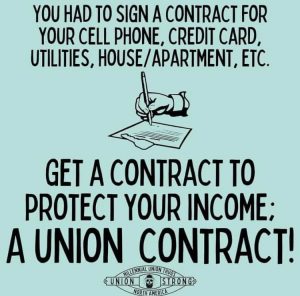 Nobody wants a union. Seems an odd statement to show up on any Local’s website; a bold, declarative statement that kicks open the mind of the reader and sparks the thought process of any sane union member. So let’s examine it!
Nobody wants a union. Seems an odd statement to show up on any Local’s website; a bold, declarative statement that kicks open the mind of the reader and sparks the thought process of any sane union member. So let’s examine it!
Having a union means you have to pay dues, even though it’s a proven fact that union members earn almost 30% more in wages and benefits than unorganized, non-union workers. Union members are also more apt to have protected health and retirement benefits.
Having a union means that you have to attend union meetings, where some members too often whittle and fritter away the time arguing over things specific only to their department, or even worse, to just them. It’s easy to forget the important issues that get hashed out.
Having a union means you have to decide and vote on those fellow friends and co-workers who will lead your union, and in what capacity. They could be a steward, treasurer, trustee, or even the President. You have to show up and then pick and choose the unlucky devil, and then see them sentenced them to a thankless job filled with endless meetings with the company and members who don’t know the difference between a gripe and a grievance for three years!
So what having a UNION means is that you have the opportunity and responsibility of taking an active role in matters concerning your employment, your future, and for some that may be too much to ask or they may not appreciate the say being a union member affords them.
No, the truth is that nobody WANTS a union, that is until they NEED it! 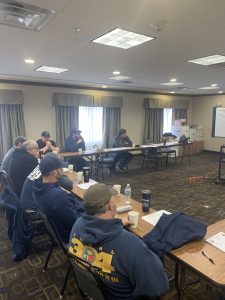
As Utility Workers, we are responsible for million of dollars of equipment that must run to provide a vital service to the communities and people we serve, and we work for one of the nation’s most powerful and influential business sectors in the American economy; the energy sector. They have layers upon layers of disposable executives and mid-level managers, whole divisions of lawyers and lobbyists, and social, political, and business connections that form a solid shield of scapegoats that protects them from all responsibility or liability.
The rest of the workforce are simply tools the company use, and anybody who’s ever been in a technical trade knows that a bad mechanic always blames his tools. Like any tool, you are used until you break or a better tool comes along.
One of our Local’s biggest problems that many of us in the energy sector face is the huge turnover in people. Once one of the oldest worker demographic, we’ve been deluded with fresh young faces while seasoned and experienced workers retire. Not only does the knowledge and talent go with them, but so does he historical and mature intellect of that union member in matters concerning the company and union.
Soon, too few present members know of the struggles and issues that came before them and their are too few “old” members left to teach them.
For instance, they don’t fully understand the benefit of legal standing being a union member working under a collective bargaining agreement (CBA) affords them, nor do they understand that it’s every union member’s responsibility to enforce the CBA. Too many times union members see things they should bring to the attention of their union representative, but blow it off. Too many times union members hesitate to stand up and say something or file a grievance when faced with situations that violate the CBA. Too many times union members that do their job and the look out for the union’s interests are allowed to be single out as troublemakers with targets on their backs.
 Unions love to talk about the old days, especially in West Virginia which has some of the most violent histories and colorful characters ever known. They brag how workers had to overcome violence, prejudice, and cultural barriers to convince the workers to unite for the common good. While they revel in the stories of past victories, unions have a blind spot for the lessons learned by their foes in business
Unions love to talk about the old days, especially in West Virginia which has some of the most violent histories and colorful characters ever known. They brag how workers had to overcome violence, prejudice, and cultural barriers to convince the workers to unite for the common good. While they revel in the stories of past victories, unions have a blind spot for the lessons learned by their foes in business
Chambers of Commerce are more prevalent in cities all over our country, like union halls used to be, because those in charge learned how to organize and unite. This gives them more resources to hire those to teach their front line managers how to concoct reasonable sounding lies, manipulate, and divide and conquer over their employees. They would readily agree that, “nobody needs a union.”
UWUA Local 304 is only a little over a decade old. We’re still evolving and maturing as a union members, but we’ll all get there together!

